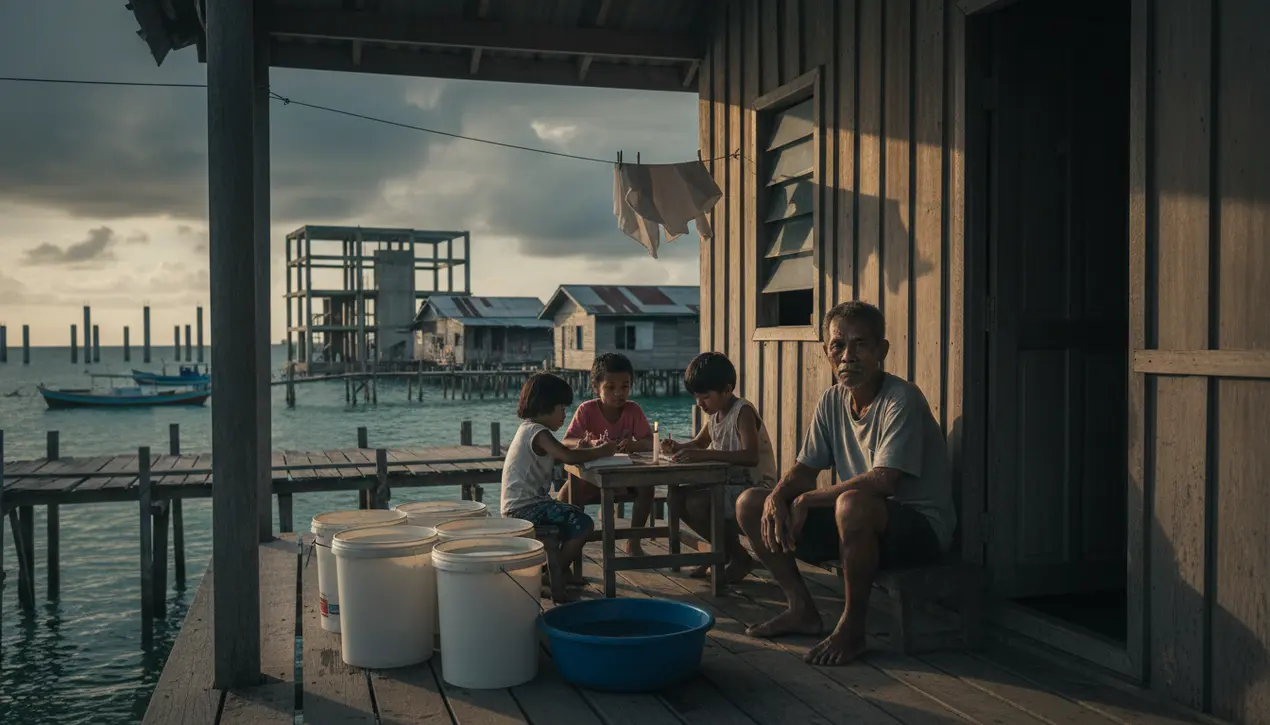
PoliticselectionsPolls and Surveys
Sabah's Poor Prepare Election Shock for Malaysian PM.
EM
Emma Wilson
17 hours ago7 min read2 comments
The gentle breeze stirring the wooden houses of Sarang, a sleepy fishing village on Sabah’s northern coast, carries with it the whispers of a coming political storm, its deceptive tranquillity a stark contrast to the deep-seated frustrations that threaten to upend the political calculus for Malaysian Prime Minister Anwar Ibrahim. For years, the people of Sabah have endured a brutal paradox: living in a state teeming with natural resources while suffering from some of the nation's most persistent poverty, chronic water shortages that force families to collect rainwater in buckets, and power cuts that plunge entire districts into darkness, crippling small businesses and daily life.Each time the taps run dry or the lights flicker out, local fisherman Johan Toikin, like thousands of his neighbours, is viscerally reminded of the federal government’s decades-long failure to fulfil its commitments under the 1963 Malaysia Agreement (MA63), which promised the state autonomy and a fair share of its own revenue. This isn't merely about infrastructure failure; it's a profound breach of trust, a story of marginalization felt from the oil-rich fields off the coast to the struggling interior villages, where indigenous communities grapple with land rights issues and a stark lack of economic opportunity.The upcoming state elections are therefore not a routine political exercise but a referendum on this legacy of neglect, with opposition parties like Gabungan Rakyat Sabah (GRS) and particularly the more hardline Sabah Heritage Party (Warisan) harnessing this tidal wave of discontent, framing the vote as a final chance for Sabahans to reclaim their dignity and economic destiny from a distant federal power in Putrajaya. The political risk here is immense; a significant swing against Anwar's unity government in this key Borneo state would not only weaken his coalition's fragile majority in parliament but could also embolden separatist sentiments and fundamentally alter the federation's balance of power, echoing historical grievances that date back to the state's formation.Analysts point to a dangerous cocktail of issues: the youth exodus for jobs in peninsular Malaysia, the unresolved problem of dubious citizenship documents issued to migrants that has altered electoral demographics, and the palpable anger that federal projects are often announced with great fanfare but then stall, leaving behind skeletons of unfinished roads and empty water treatment plants. The human cost is etched into the faces of paddy farmers whose crops fail without reliable irrigation and parents who watch their children study by candlelight, a powerful emotional undercurrent that is now being expertly channeled into a potent electoral force.This is a crisis born from a failure of delivery, where the abstract promises of development have collided with the harsh reality of empty promises, and the outcome in Sabah will send a shockwave far beyond its shores, testing the resilience of Malaysian federalism and potentially setting a precedent for other disaffected states. The world should watch closely, for the quiet anger in villages like Sarang is no longer just a local issue; it is the forefront of a battle for the very soul of Malaysia, a dramatic manifestation of how foundational pacts, when left unhonoured, can come back to haunt a nation's leadership with devastating electoral consequences.
#Malaysia
#Sabah
#state elections
#government failure
#infrastructure
#water shortages
#power cuts
#lead focus news
Stay Informed. Act Smarter.
Get weekly highlights, major headlines, and expert insights — then put your knowledge to work in our live prediction markets.
Related News
Comments
Loading comments...
© 2025 Outpoll Service LTD. All rights reserved.